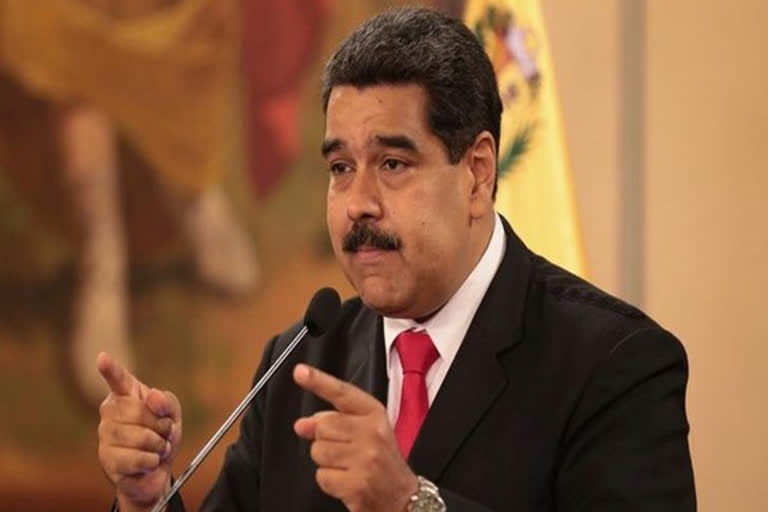Caracas: Venezuela expelled Germany's ambassador Wednesday, hitting out at international support for opposition leader Juan Guaido as the US stepped up sanctions in a bid to force out his rival, President Nicolas Maduro, despite UN criticism.
The foreign ministry said Martin Kriener had 48 hours to leave for "interference" in Venezuela's internal affairs. He had greeted Guaido at Caracas airport on his return to the country on Monday.
Guaido said in a speech to opposition lawmakers that Kriener's expulsion will be seen "as a threat to the free world." Kriener was among more than a dozen foreign representatives to welcome the National Assembly leader -- recognized as interim president by more than 50 countries -- but so far the only one deemed "persona non grata".
Kriener had helped to try to bring humanitarian aid to the country, he said, adding: "It seems that the Maduro regime does not forgive anyone who wants to help Venezuela." Berlin protested the decision, Foreign Minister Heiko Maas saying that kicking Kriener out only "aggravates the situation".
Caracas "is sending a message to the international community that such frontal support would have consequences, but it also carries a risk," said Venezuelan analyst Mariano de Alba.
Also Read:Portugal carnival floats take aim at politicians
Meanwhile Washington tightened the screws on its campaign of sanctions to force Maduro from power, revoking the visas of 77 people linked to the regime, including officials and their families.
"We will continue to hold all of the Maduro regime accountable until democracy and libertad (liberty) are fully restored," US Vice President Mike Pence said in a speech.
Last week, Washington revoked 49 visas from Venezuelan figures.
National Security Advisory John Bolton said the US also is putting foreign financial institutions on notice that they will face sanctions if they facilitate "illegitimate transactions that benefit Nicolas Maduro and his corrupt network." The US is already trying to cripple Maduro's access to finances via sanctions on state oil company PDVSA and handing control to Guaido of Venezuelan bank accounts in the United States.
However, UN human rights chief Michelle Bachelet said sanctions have worsened Venezuela's crippling economic and political crisis, which has forced 2.7 million people to flee since 2015.
"Venezuela clearly illustrates the way violations of civil and political rights -- including failure to uphold fundamental freedoms, and the independence of key institutions -- can accentuate a decline of economic and social rights," said Bachelet, a former president of Chile.
"This situation has been exacerbated by sanctions," Bachelet said in her annual report to the Human Rights Council in Geneva.
Maduro has repeatedly said his socialist government is the victim of an "economic war" driven by US "imperialism" -- with sanctions the weapon of choice to try to topple him.
Guaido, 35, returned home to a hero's welcome on Monday, having defied a ban on leaving the country to embark on a 10-day tour of South American allies. He remains free despite the threat of arrest by the government.
